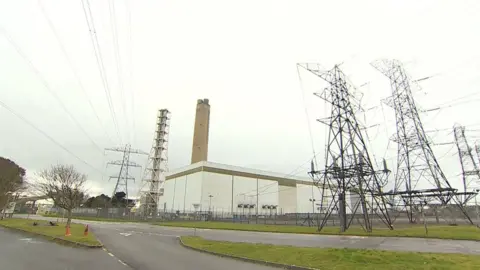Climate change: Wales on track to meet targets, says Julie James
 BBC
BBCWales is on track to meet climate change targets, according to the minister in charge.
But Julie James warned that there was still an "uphill challenge" to reduce carbon emissions over the next 10 years.
New figures reveal emissions reduced by 40% in 2020, exceeding the target of a 27% reduction on 1990.
Ms James, the climate change minister, said "now is not the time to rest" and the 2020s must be a "decade of action".

The figures on greenhouse gases, published by the UK National Atmospheric Emissions Inventory, also show:
- Wales is also likely to have met its first "carbon budget", which set a legal target of achieving an average reduction of 23% on 1990, by 2020
- Wales is likely to have outperformed this by achieving an average reduction of 28%
Ministers say both the energy crisis and cost of living crisis show Wales needed to double down on efforts.
Scientists have also been clear that Wales was particularly vulnerable to extreme flood events as climate change intensified.
Ms James added the data was an "important step on our journey towards a cleaner, greener Wales".
"While we must continue shouldering our global responsibility to protect our precious planet for future generations, the Welsh government cannot work in silo to confront the climate and nature emergencies," she said.
"Everybody in Wales has started to realise the benefits of change, and now is not the time to rest."
But she warned we may need to take difficult choices.


Welsh government ministers set a 10-year target in 2010 to slash emissions by 40% by 2020 compared with 1990.
But it wasn't legally binding - just something to aim towards.
And for years it looked like it wouldn't be met with Wales lagging behind the UK as a whole.
Senedd committees and government advisers warned of "disappointing progress".
So in 2018, what appeared to be more realistic - and legally binding - goals were announced: a 27% cut by 2020.
Then Wales' last coal fired power station at Aberthaw in the Vale of Glamorgan started to shut down and that made a massive difference to the figures.
So now the original goal has been met and the updated target, to all intents and purposes, smashed.
Since then though future targets have been upgraded - we're aiming for 63% by 2030 and 89% by 2040 on the road to net zero by 2050.
It's why the Welsh government warns of an "uphill challenge" and difficult choices ahead.
